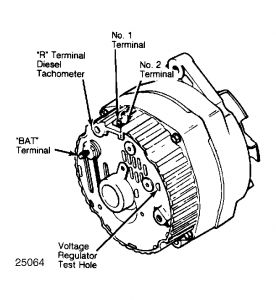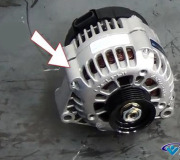Thursday, September 25th, 2008 AT 1:04 AM
I have been through two alternators. Each one I disconnect the positive cable while the car was running to see if the alternator would keep the car running. The alternator is putting out 11.96 volts. If I charge up the battery the car will start and run for three days. I let the car run for 30 minutes and got the check engine light soon light to stop coming on in the daytime, but when I drive at night with the light on the Check engine soon light come on. I have to keep charging the car in order to use it. This doesn't give me the opportunity to go to Walmart 25 miles away. If I bought another alternator and put in in would this make the car run the way it used to? What else would I have to do? Thanks.





